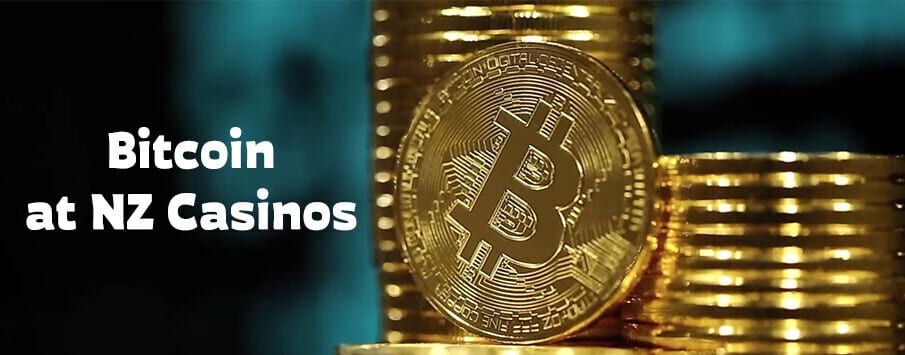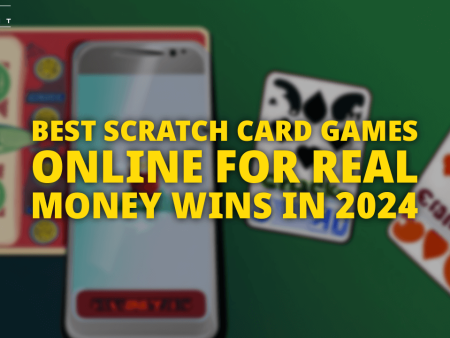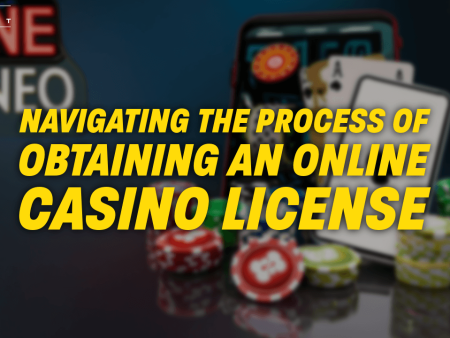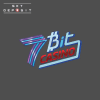
In recent years, online NZ casinos that accept bitcoin and their digital cousins have become incredibly popular. Each offers different games, features, payment methods and currencies. Besides coins, all players can also use regular payment methods like credit cards, debit cards, web wallets and even eChecks. But should you take advantage of crypto at online casinos?
In this article, we have collected for you all the info you need to know about Bitcoin and other cryptos, how you can use them to make your deposits and withdrawals easily, and what are their pros and cons.
Best list of NZ Casinos
🔝Top-Rank 🔏 Trusted & Licensed ⚡️ Fast Payouts 🇳🇿 High Payouts
Last updated: July 2024
What Is Bitcoin?
Before they get to cryptography, decentralization and, well, the future of autonomous humans, we need to know something about money! Because money is ultimately an unwritten contract between two parties, the seller and the buyer, supervised by the central bank that issued this banknote.
Take the 5 New Zealand dollars note with which you pay for two bags of tomatoes at the market. The buyer and the woman behind the fruit stall agree that the note is worth 5 euros, is now in the possession of the tomato buyer and later in the possession of the market woman. You can both check whether the note is genuine, for example by looking at the watermark of the yellow-eyed penguin.
This agreement between buyer and seller is more complicated to do digitally! You send info and thus transfer money, say 40 New Zealand dollars for sunglasses on a virtual Marketplace. But the seller can’t see if there are 40 New Zealand dollars in your account, or if you just say that you transfer 40 New Zealand dollars.
So, there is a third party conducting the payment. For example a bank or credit company. These companies are central points in our payment system, topped by a national bank.
Are Cryptos an Alternative to Fiat Currencies?
Bitcoin enthusiasts believe there should at least be a neutral alternative to fiat currencies. Because a national bank can just decide to print money and that makes money worthless. Perhaps the government and the central bank are in a good mood now, but who knows, in thirty years’ time that will be different! For instance, in Venezuela, the government printed so much money in 2019 which caused hyperinflation. In other words, there are too many resources chasing too few goods. Also, you are vulnerable as a customer: what if a bank goes bankrupt?
If bitcoin is anything, it promises to solve these problems. On November 1, 2008, a certain Satoshi Nakamoto wrote to a mailing list of cryptographers that he had devised a new, electronic solution for (cash) money. On January 3, 2009, the first bitcoin units were born online. For the sake of completeness: bitcoin is a payment method, just like the euro or the yen. Anyone who has bitcoin can pay with it at someone who accepts it.
Using Bitcoin / Crypto Transactions
Nobody knows who Nakamoto is, not even if it is one person. However, in 2021, the CIA declared that they have knowledge of the true ID of Satoshi Nakamoto. Anyway, Bitcoin still exists, spread over the world, and thrive!
The blockchain tech records every transaction. Compare it to the bank account statement that states exactly who paid what amount to whom. But with bitcoin, everyone who owns it gets such an overview of all transactions. If someone in New Zealand transfers bitcoin to an uncle in France, that transaction appears in all overviews of members in the system!
Nakamoto wanted to get rid of the idea that we just have to trust that the money was actually transferred. The risk of digital scams is high. In the physical world, you cannot give the same NZ$ note to the market vendor or the shoemaker. Everything can be copied and spread over millions of servers and super computers. Instead of a watermark, Nakamoto figured that the transaction is controlled by other members of the community, this tech is called “the ledger”.
Each transfer has a cryptographically encrypted characteristic, a message in a secret language. The computers of the members in the system are deciphering them. If the outcome is correct, then the transaction is correct.
Not Trust, but Computing Power!
Members check each other and use blockchain tech to bring new bitcoins onto the market. The great power is that complete strangers reach a consensus about the value of something. Not to be believed together, but via a verifiable calculation, says researcher and publicist Bert Slagter, presenter of Satoshi Radio, a podcast named after the creator(s) of bitcoin!
Bitcoin does not belong to anyone. So not one person can decide to generate more bitcoins, decreasing the coin’s purchasing power or making it worthless. To avoid inflation, the last bitcoin will be mined sometime before 2140. By that time, the reward of miners will consist entirely of transaction costs and no longer of new bitcoins.
All transactions are public. The approved transfers are stored in blocks. These are again arranged in a certain order according to the blockchain. Moving boxes full of bank statements for everyone to check.
How to Make Deposits & Withdrawals at Crypto Casinos?
To make your deposits and withdrawals in an online casino using Bitcoin, you need, first, to find a suitable site that accepts cryptos. Fortunately, you are in exactly the right place as here we recommend the best NZ crypto casinos on the scene. Once you find the right casino, you will need to create a new account by filling out the signup form. Most of the time, the casino will ask you for personal details such as your full name, date of birth, email, place of residence and postal address.
Next, you have to add your bitcoin wallet address to your account to make deposits and withdrawals. This address is the one you will use to make deposits to and from the casino afterwards.
If you are not aware of your wallet address, you can find it by entering your wallet website or app. After that, log in to your account and then click on details. You will find your wallet number. In addition, you will also find the QR code that you can use on your smartphone.
To make a deposit or withdrawal, go to the cashier section of your online casino account. Next, choose Bitcoin or any other digital currency as the way to make your payments or transactions. After that, the casino will redirect you to your wallet to confirm the transaction.
Note that if you make your deposit using any crypto, the casino will convert it into NZ$. But when you withdraw your winnings, the casino will transfer the amount to the same currency you used to deposit. The cashier section will ask you to paste your wallet address into the recipient field. Just don’t forget to double-check everything before hitting the confirm button!
What Are the Risks of Using Cryptos at Online Casinos?
There are some risks of using digital currencies that you can easily avoid. In the next part, we have pointed out the most prominent risks of using cryptos and ways to prevent them.
- Fraud. Fraud is perhaps the biggest fear that prevents many players and users from exchanging their fiat currencies for cryptos. However, prevention is easy! Only buy cryptos from a trusted seller, and only use a well known crypto wallet. In addition, you only have to play at reputed sites.
- Stealing. Due to its digital nature, stealing bitcoin is different from stealing any other asset. Practically, a thief can only take your cryptos with your responsibility! Therefore, we advise players to always set a complex password and to use their own personal devices when playing at crypto casinos.
- Value Fluctuation. Cryptos are experiencing a sharp fluctuation in their value. Therefore, it is important to use your deposited cryptos quickly in play and not hold them for a long period of time.
Conclusion
Bitcoin and other cryptos are great financial methods that you can use to keep your ID secret and enjoy fast and hassle-free financial operations without a lot of commissions. It’s like giving a NZ$ 5 bill to the market and the other customers all look at the watermark and confirm out loud that it is indeed a NZ$ 5 bill before it changes hands. As a reward for that confirmation, inspectors receive new bitcoins. Because the watermark, in this case, is cryptographic, bitcoin and other coins are also called “crypto coins”. Deciphering it and thus ‘making’ bitcoin is called mining. That mining takes a lot of computing power from computers, and therefore a lot of energy.















